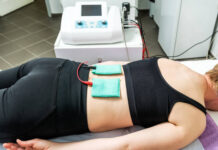Medical advancements are improving day by day enabling pregnant women to detect the birth defects in a baby. However, they need proper research that will help a lot to make a better decision. Pregnant women should undergo certain screening tests to determine the problems in the early stage. Moreover, they allow a pregnant woman to take care of her baby properly to prevent potential threats. It is important to know more about prenatal tests in detail. Apart from that, they show ways to overcome complications while giving birth to a baby.
What is the QF-PCR test?
Quantitative fluorescent polymerase chain reaction, shortly known as QF-PCR, is a test conducted for evaluating chromosomal abnormalities with high accuracy. It is an automated technique designed for the rapid diagnosis of select chromosomal anomalies in a baby. The test is ideal for amplifying certain regions of DNA that will help detect the number of DNA present in those regions. It contributes more to screen chromosomal trisomy and submicroscopic deletions and duplications. Furthermore, the test procedure gives ways to detect the presence of additional chromosomes in pregnant women to evaluate Down’s Syndrome, Edwards Syndrome, Patau Syndrome, etc.
How is the QF-PCR test performed?
The test involves taking a blood sample from a pregnant woman and a test centre will send it to a laboratory. In some cases, doctors will recommend the products of conception (POC) such as foetal tissues and placental remains for this test. A laboratory will extract the DNA from POC and test the same for further analysis. It takes nearly 3 to 4 days to receive the test results from a laboratory. A couple should attend post-result free counselling to understand the test results better. Since the test requires a recommendation from a qualified physician, couples should search for the details from different sources.
Why do pregnant women need QF-PCR test?
QF-PCR test is a total DNA test that helps to detect chromosomal trisomy and gene issues that can affect a baby in various ways. The test procedure allows pregnant women to screen certain chromosomal abnormalities such as 13,18, 21,15,16, 22 & aneuploidies with high accuracy. Besides that, it eliminates the chances of culture failure by addressing the essential needs of a pregnant woman. However, it is wise to consult with a physician before undergoing this procedure that will help make the right decision.
How QF-PCR test helps prospective parents?
QF-PCR test is suitable for couples who want to become a parent soon. The procedure aims at diagnosing chromosomal abnormalities in a baby that will help reduce risks. Not only that, but the procedure also allows a couple to plan for a child with special needs. It even gives ways to decide on carrying the child to term. The test provides ways to determine certain syndromes caused by gene problems. Apart from that, the medical procedure lets women analyse the test results with a physician to take care of a baby with more attention.
What are the sample requirements of the QF-PCR test?
QF-PCR test screens the birth defects in a baby with 3 different samples. The first one is a blood sample taken from a woman to detect the cells and chromosomes. Chorionic villus sample (CVS) is the second form used in this test which involves taking a small sample of the baby’s blood cells from the Chorionic villus. Amniocentesis is the third sample format used in this test where a physician will take a sample of amniotic fluid that surrounds a baby. It is important to know the risks of CVS and Chorionic villus from a physician.
Does the QF-PCR test have any limitations?
QF-PCR test is ideal for detecting the increased chance of having a chromosomal or genetic condition accurately. It doesn’t screen very subtle chromosomal imbalances as some of them are small. The test cannot detect certain conditions such as spinal bifida, autism, and other physical conditions. Besides that, it can detect an unexpected chromosomal change occasionally which is not related to the ultrasound findings. Anyone who wants to undergo the test should attend counselling sessions to avoid fear and other mental worries.
How to get ready for the QF-PCR test?
A couple should know how to get ready for the QF-PCR test from different sources that will help a lot to overcome unwanted problems. They need a blood group detection test before undergoing the procedure. A screening clinic will screen for HIV and hepatitis B infections to minimize the risks of transmission to an unborn baby. An ultrasound scan is necessary to measure the baby and checking the position of the placenta before the procedure. A doctor will tell whether to take food or drinks before and after the test. The costs of the QF-PCR test may vary from one test centre to another test centre in a location that requires complete research.








